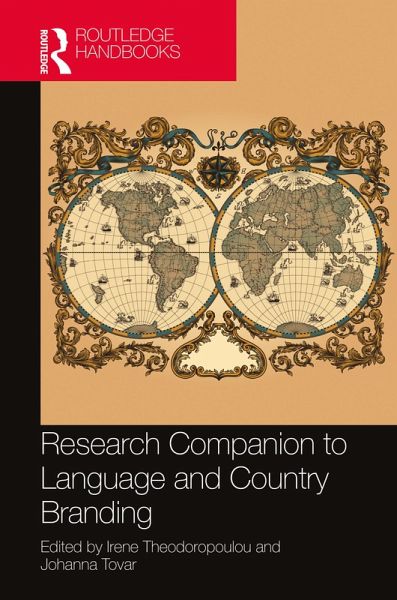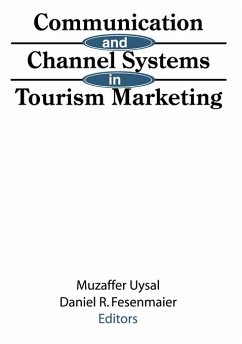
Research Companion to Language and Country Branding (eBook, ePUB)
Versandkostenfrei!
Sofort per Download lieferbar
46,95 €
inkl. MwSt.
Weitere Ausgaben:

PAYBACK Punkte
23 °P sammeln!
Research Companion to Language and Country Branding brings together entirely new interdisciplinary research conducted by scholars working on various sociolinguistic, semiotic, anthropological and discursive analytical aspects of country branding all over the world.Branding is a process of identity construction, whereby countries gain visibility and put themselves on the world map as distinctive entities by drawing on their history, culture, economy, society, geography, and their people. Through branding, countries aim not only at establishing their uniqueness but also, and perhaps most importa...
Research Companion to Language and Country Branding brings together entirely new interdisciplinary research conducted by scholars working on various sociolinguistic, semiotic, anthropological and discursive analytical aspects of country branding all over the world.
Branding is a process of identity construction, whereby countries gain visibility and put themselves on the world map as distinctive entities by drawing on their history, culture, economy, society, geography, and their people. Through branding, countries aim not only at establishing their uniqueness but also, and perhaps most importantly, at attracting tourism, investments, high quality human capital, as well as at forging financial, military, political and social alliances. Against this backdrop, this volume explores how countries and regions imagine and portray others and themselves in terms of gender, ethnicity, and diversity today as well as the past. In this respect, the book examines how branding differs from other, related policies and practices, such as nation building, banal nationalism, and populism.
This volume is an essential reference for students, researchers, and practitioners with an interest in country, nation, and place branding processes.
Branding is a process of identity construction, whereby countries gain visibility and put themselves on the world map as distinctive entities by drawing on their history, culture, economy, society, geography, and their people. Through branding, countries aim not only at establishing their uniqueness but also, and perhaps most importantly, at attracting tourism, investments, high quality human capital, as well as at forging financial, military, political and social alliances. Against this backdrop, this volume explores how countries and regions imagine and portray others and themselves in terms of gender, ethnicity, and diversity today as well as the past. In this respect, the book examines how branding differs from other, related policies and practices, such as nation building, banal nationalism, and populism.
This volume is an essential reference for students, researchers, and practitioners with an interest in country, nation, and place branding processes.
Dieser Download kann aus rechtlichen Gründen nur mit Rechnungsadresse in A, B, BG, CY, CZ, D, DK, EW, E, FIN, F, GR, HR, H, IRL, I, LT, L, LR, M, NL, PL, P, R, S, SLO, SK ausgeliefert werden.













